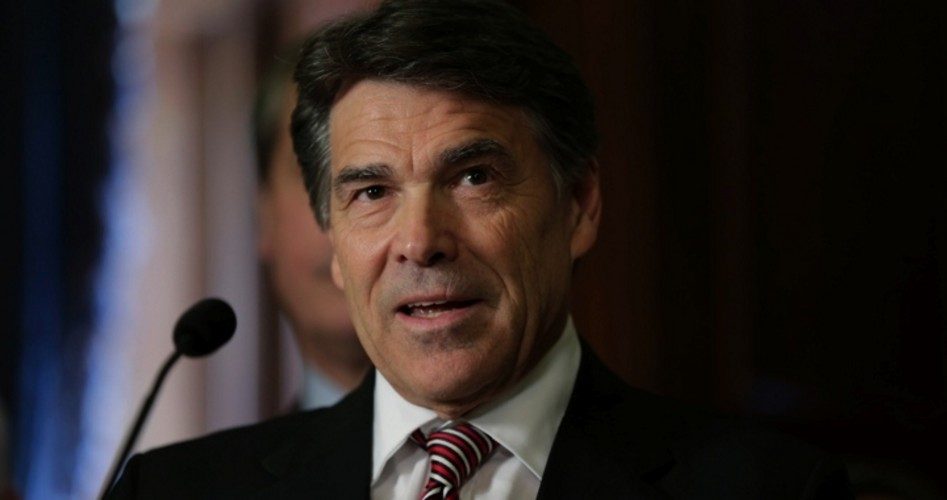
Texas Governor Rick Perry signed a bill June 13 that will protect the rights of individuals to offer greetings and display religious symbols on school property during Christmas and other holiday seasons. The new law is designed to protect individuals and groups from legal challenges to what the bill’s author, State Rep. Wayne Bohac, says is a First Amendment protected right to religious expression. Bohac introduced H.B. 308, dubbed the “Merry Christmas Bill,” after his son’s school displayed a “holiday tree” rather than a Christmas tree because school officials feared a lawsuit from one of the secular grievance groups known for attacking communities and school districts over contrived First Amendment concerns.
“I am proud to have authored the ‘Merry Christmas Bill’ which allows students, parents, teachers, and administrators the freedom to acknowledge traditional winter holidays like Christmas and Hanukkah in Texas public schools without fear of litigation or punishment,” Bohac said in a statement. “Teachers and [school districts] have enough on their plate, and worrying about openly celebrating a Federal holiday and getting sued or reprimanded should not be one of them.”
Bohac recalled that “when I picked up my six-year-old first grader from school and found out school districts and teachers felt pressured by political correctness to change the way they referred to ‘Christmas trees’ and Santa and holiday music, I had enough. H.B. 308 protects schools and teachers from ridiculous litigation and restores common sense by placing Supreme Court precedent into Texas Law.”
Gov. Perry, who signed the bill in a high-profile ceremony that included sleigh bell-ringing Santas and other Christmas motifs, told those assembled for the event that “I realize it’s only June, but it’s a good June and the holidays are coming early this year. It’s a shame a bill like this one I’m signing today is even required, but I’m glad that we’re standing up for religious freedom in this state.”
In a prepared statement Perry said that “freedom of religion doesn’t mean freedom from religion, and people of faith often feel like they can’t express that faith publicly. H.B. 308 works to address that by ensuring that people of all faiths are free to use traditional holiday greetings, and display religious scenes and symbols, even on school property. It ensures freedom of expression where — for many students, teachers, and administrators — it’s most important.”
Among those in attendance at the bill signing were cheerleaders from Kountze High School in East Texas, who in 2012 were barred by their school district from displaying banners with Bible verses at football games. In May of this year a state district judge officially overturned the school district’s policy, ruling that no law “prohibits cheerleaders from using religious-themed banners at school sporting events.”
The American Civil Liberties Union, one of the secular groups known for assaulting schools and communities over religious expression cases, indicated that it would be watching Texas to see if there might be an opportunity to challenge the law. “We will be monitoring this very closely,” Tom Hargins, director of communications for the ACLU of Texas, told the New York Daily News. “We hope that school administrators will remain mindful that it is up to parents to introduce and teach their kids about religion, not the public schools.”
Bohac noted that since passage of the bill he has been inundated with phone calls, e-mails, and letters from teachers, school officials, and parents thanking him for authoring the measure. He added that he has also been contacted by individuals in other states who hope their legislators will consider sponsoring such a bill in their states. “Thanks to overwhelming support from my colleagues in the Texas Legislature, Governor Perry, and the people of Texas, the Merry Christmas Bill is now the law of the land in the Lone Star State,” Bohac said in a statement. “I encourage our friends in our neighboring 49 states to take a look at what we’ve done with the Merry Christmas Bill here in Texas, and challenge them to join us in passing similar legislation to protect our freedom and sacred American traditions.”


